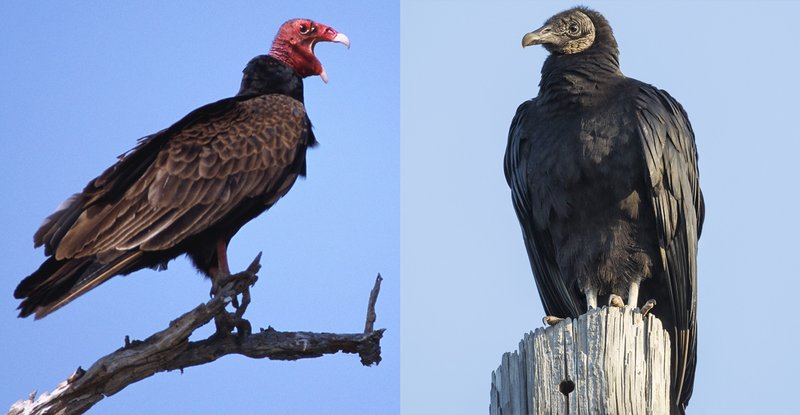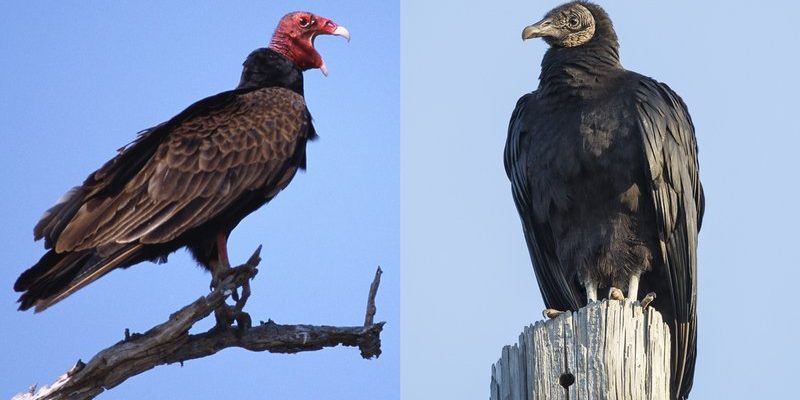
Vultures are skilled scavengers, playing a vital role in their ecosystem. Still, they aren’t the only birds that thrive on what others leave behind. Birds like hawks, eagles, and even certain types of crows share some traits with vultures. But how do you really tell them apart? Let’s dig into the fascinating world of these feathered friends and discover what makes vultures unique compared to their similar counterparts.
What Sets Vultures Apart?
To understand the differences, we first need to get to know vultures a little better. Vultures belong to two main families: *Accipitridae* (which includes Old World vultures) and *Cathartidae* (the New World vultures). One of the standout features of vultures is their incredible sense of smell. Unlike most birds of prey, New World vultures can actually sniff out their meals from miles away. Imagine having a superpower that lets you find food just by smelling it!
Another distinguishing characteristic is their bald heads. It might seem unappealing at first glance, but this adaptation helps keep them clean. When vultures feast on carcasses, having feathers would trap bacteria. By being bald, they avoid picking up germs, which is downright clever. So, while they might not win a beauty pageant, their design is all about survival.
Vultures also possess strong legs and feet designed to support their particular lifestyle. You won’t see them swooping down to catch live prey like eagles or hawks do. Instead, their feet are meant for walking and tearing apart carrion. This specialization really sets them apart in the bird community.
Vultures vs. Eagles: Who’s the Apex Predator?
Eagles are often called apex predators, and for a good reason. With their sharp talons and keen eyesight, they’re experts at hunting live prey. While vultures might look similar in size and wingspan, there’s a world of difference when it comes to their hunting styles.
Eagles fly high, scouting for movement on the ground. With those sharp eyes, they can spot a small rabbit or fish from hundreds of feet up. Once they’ve locked in on their target, they dive down with incredible speed and precision. Picture an arrow shooting straight towards its mark—that’s an eagle in action!
On the other hand, vultures are basically the cleanup crew. They spend a lot of time soaring on thermal currents, scanning the ground for the telltale signs of death. Rather than chasing after something alive, they’re patient, waiting for nature to do its thing. If you see a lot of vultures in one spot, it likely means they’ve found a meal—a sad but necessary part of the cycle of life.
In short, both birds are impressive in their own rights, but they fulfill very different roles in their ecosystems. While eagles are the hunters, vultures are the recyclers!
Comparing Vultures and Hawks: Masters of the Skies
Now, let’s talk about hawks, another bird of prey that shares some similarities with vultures. For instance, both birds might be spotted soaring high in the sky, but their behaviors and diets are quite different.
Hawks are much more versatile than vultures. They can hunt small mammals, birds, and reptiles with great agility. Hawks have sharp, curved beaks and powerful talons that they use to catch and kill their prey. If you think of hawks as the sharpshooters of the bird world, vultures are the wise old teachers that know how to make the most of what’s available.
Hawks are also known for their speed and agility. When you see a hawk fly, it often flaps its wings rapidly, soaring with precision. Vultures, on the other hand, are experts in gliding. They rely on those thermal updrafts to keep them soaring with minimal effort. It’s like comparing a sports car to a hot air balloon—both get you where you need to go, but they do it in very different ways.
Despite their differences, both vultures and hawks play crucial roles in controlling populations of small animals. Without them, we’d likely see some ecosystems become unbalanced.
How Do Vultures Compare to Corvids?
Corvids, such as crows and ravens, are quite a diverse group! They’re known for their intelligence and adaptability. While both vultures and corvids are scavengers, their approaches differ significantly. Corvids are more opportunistic and will often eat whatever they can find. They’re the cheeky ones of the bird community, scavenging everything from roadkill to leftover picnic scraps.
In contrast, vultures stick to their specific diet of carrion. They’re like the specialists of scavenging. While corvids might pick at a meal they come across, vultures prefer to feast on larger carcasses that require a team effort to break down. You’ll often see them gathered in groups, working together. It’s a bit like a dinner party—you need a few friends to share the feast!
Another fun fact: corvids are incredibly clever and can solve complex problems. They’ve even been known to use tools! Vultures, while not as quick-witted, are specialized for their role, honed over millions of years of evolution. So, while you might think they’re just a couple of birds with similar habits, there’s much more to their story.
The Role of Vultures in the Ecosystem
Vultures aren’t just interesting; they’re *essential* players in the ecosystem. By feeding on dead animals, they help prevent the spread of diseases. Imagine if all that rotting flesh were left to sit; it would create nasty odors and attract all sorts of pests. Vultures act like nature’s cleanup crew, ensuring that their environment stays healthy and balanced.
When vultures eat carrion, they’re not just getting rid of it; they’re also recycling nutrients back into the soil. This process helps plants grow, keeping the cycle of life going strong. Without vultures, we’d see an uptick in disease and a decline in the health of many ecosystems. It’s a ripple effect—when one piece is missing, the whole puzzle is affected.
It’s pretty fascinating how a bird often associated with death has such a positive impact, right? Instead of feeling squeamish about vultures, it’s worthwhile to appreciate their role in keeping nature in balance.
Recognizing Vultures and Their Relatives
If you’re out birdwatching, knowing how to identify vultures among their lookalikes can enhance your experience. Here are some tips to help you spot a vulture versus other similar birds:
- Size and Shape: Vultures are generally larger with long, broad wings. They have a distinctive “V” shape when flying, while eagles and hawks have more pointed wings.
- Coloration: Vultures typically have darker plumage, and their bald heads can make them easy to recognize. Corvids like crows are often glossy black, while hawks have distinctive markings or stripes.
- Behavior: Watch how they fly—vultures tend to soar gracefully, while hawks flap more frequently. If you notice a bird circling without flapping much, it’s likely a vulture!
Understanding these traits can help you appreciate the different roles each bird plays in the ecosystem. Each species has its strengths and quirks, and recognizing them can deepen your connection to nature.
Why Vultures Matter
In conclusion, vultures and their similar bird species all play unique roles in the world around us. While they might seem a bit daunting at first, understanding their differences and characteristics can be a rewarding experience. Vultures clean up our environment, while members of the raptor family hunt and control populations of smaller animals. And then you’ve got the clever corvids, ever ready to adapt and scavenge.
So, the next time you see a vulture soaring overhead, take a moment to appreciate what it represents. They might be misunderstood, but they’re vital to our ecosystems. Just like the cleanup crew at a big event, they ensure that everything runs smoothly and efficiently. After all, nature has its way of maintaining balance, and vultures are a crucial part of that equation.

